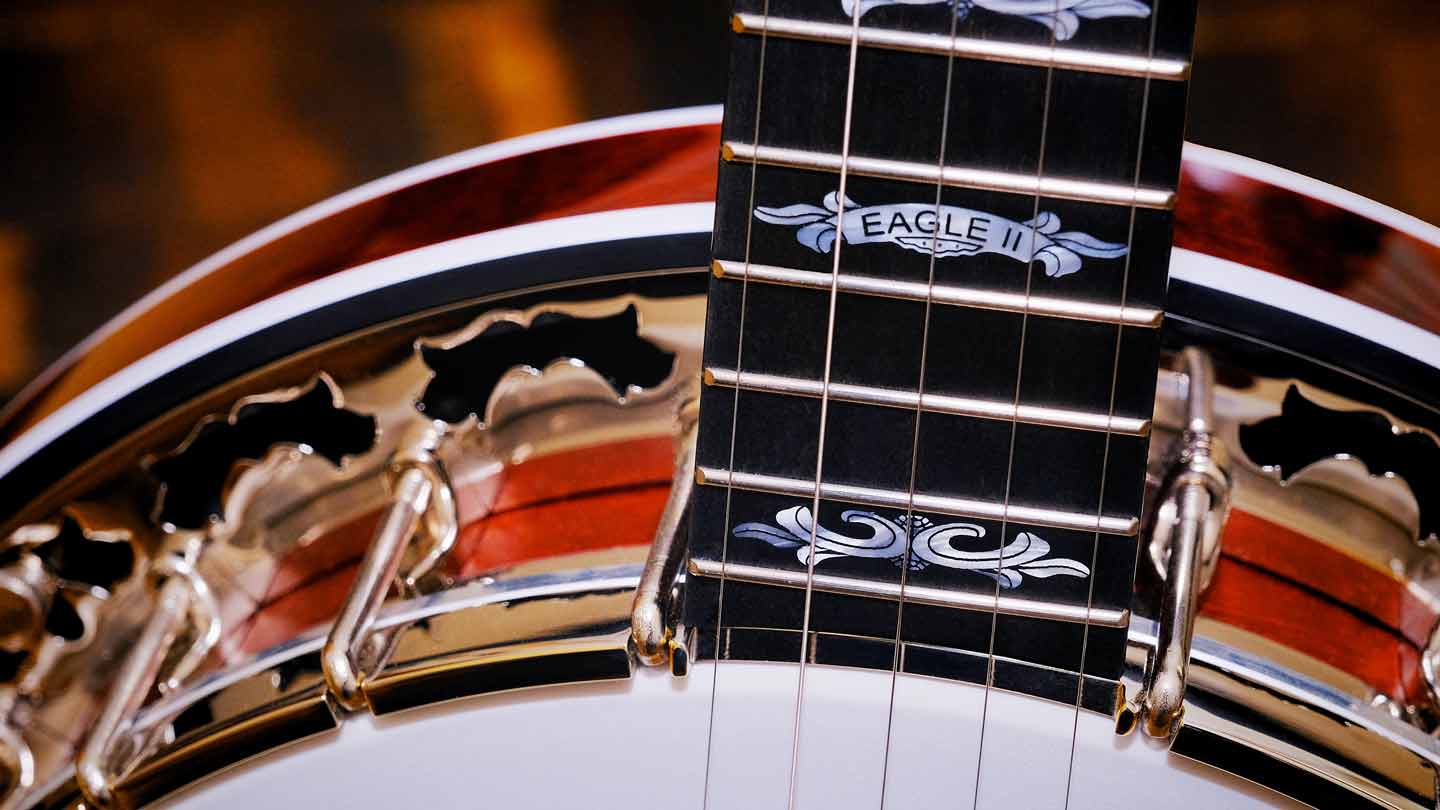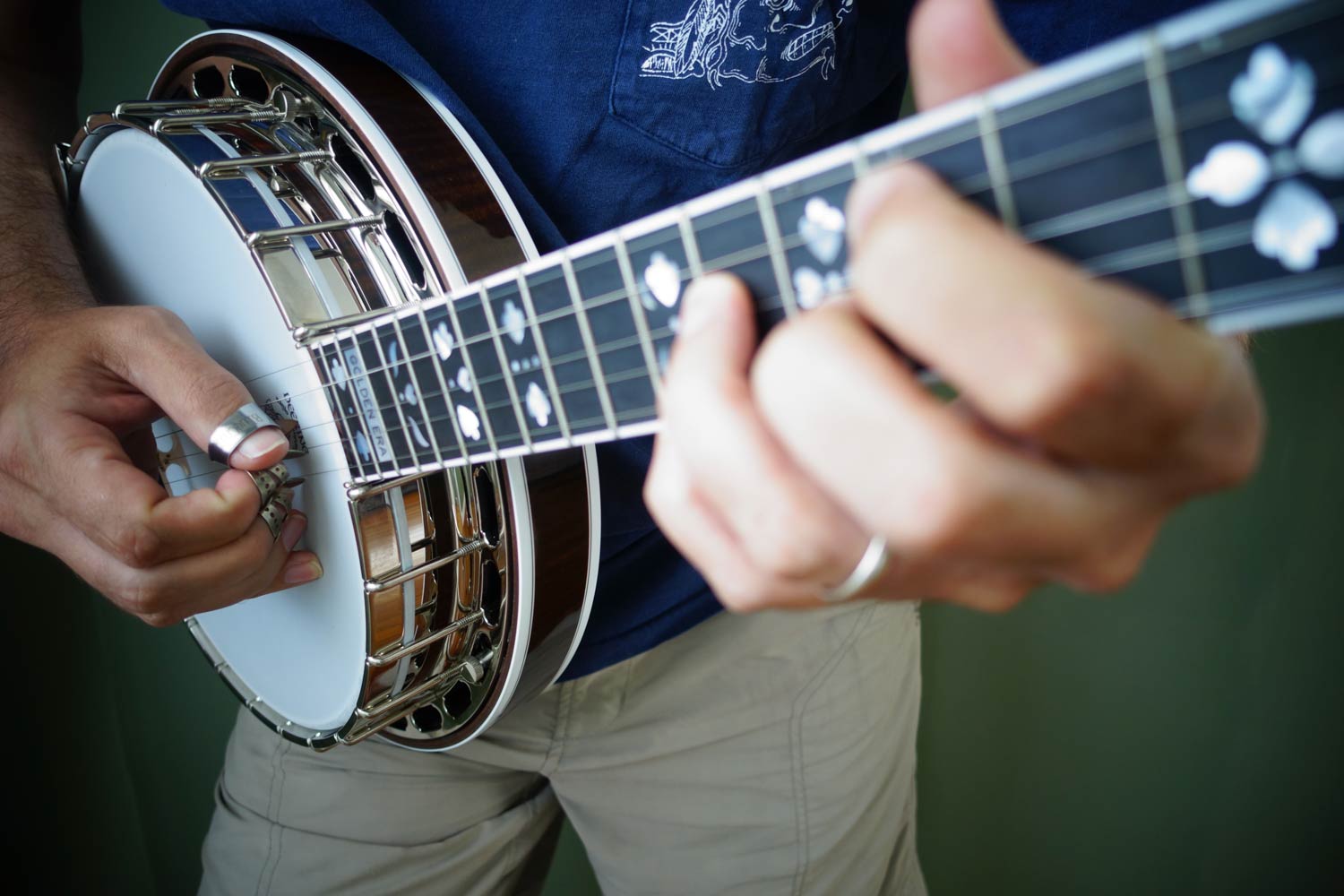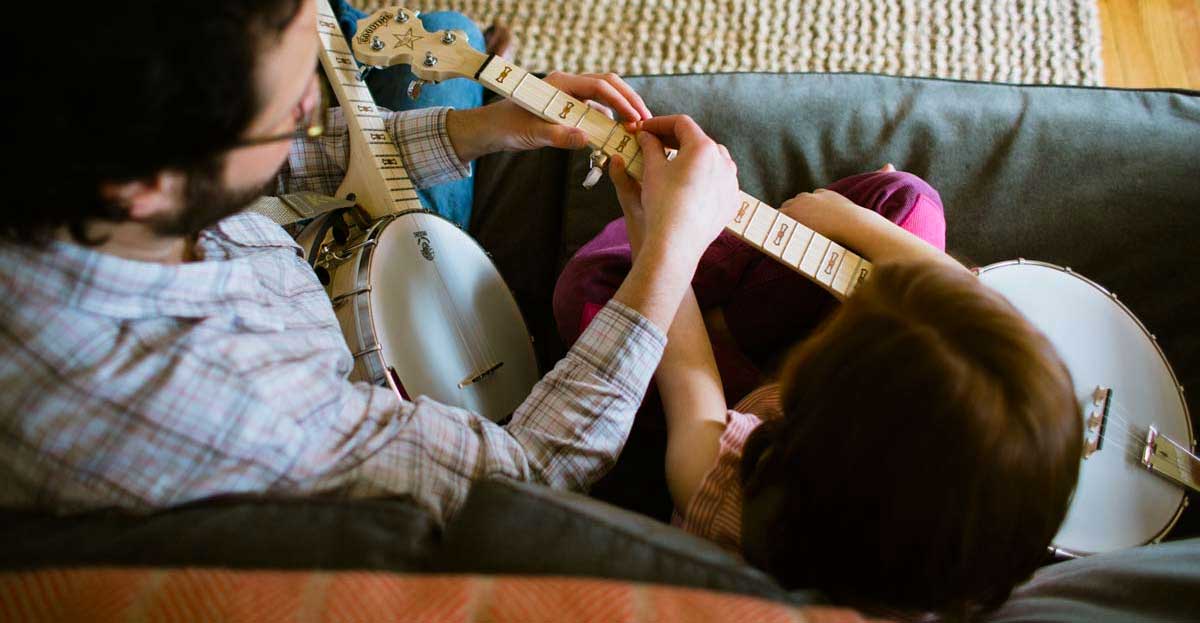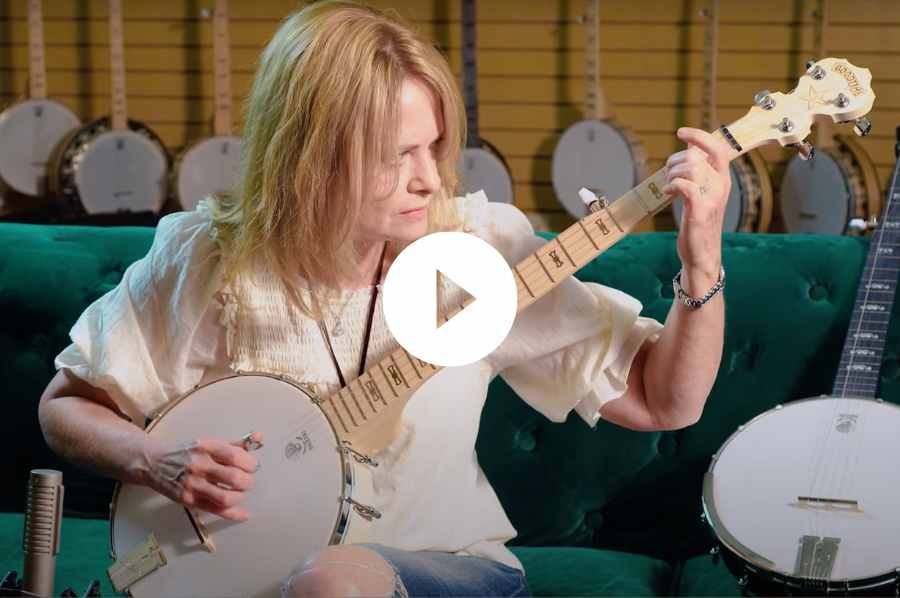Buying A Banjo on Amazon
Oh, Amazon...love it or hate it, the brainchild of Jeff Bezos has singlehandedly changed how we buy the products we want. Anything you could ever dream of is on there. Need the latest electronic products? You got it. Need a barrel of protein powder delivered by 4am the following day? Not a problem! Need to have dog food delivered each month on a subscription basis? Yes, absolutely.
I hear they sell books, too!
As a customer., Amazon might be an option to buy a new banjo. Possibly your first banjo. Whatever you feel about Amazon, our societal habits, as well as our expectations have been permanently changed. And there are certainly many positives. But with all of the positives, there of course come negatives and in the banjo world,, it is filtering through the overwhelming amount of utter nonsense when trying to decide what banjo to buy.
There are several "brands" that I will not name, making some claims on Amazon that are as outrageous as their quality. In this article, I want to take a minute to pick out a few observations and hopefully educate future banjo owners on the reality of these claims so that they can make the best buying decision for themselves. So let's take a look.
That's a great price! Or is it?
First and foremost, you are buying a musical instrument. You are not buying a TV, or a fridge or a lamp. Musical instruments, including banjos, are a very personal thing and the quality of the one you buy can literally be the difference between learning success and failure. Our advice is to ALWAYS try to buy the best you can afford. Ask yourself whether or not you think a $150 banjo is really going to stand up in the same way a $500 banjo would.
The old "Quality Craftsmanship" play!
Anyone who makes musical instruments will tell you that there is a team of craftsmen making superior-quality products. They say this because they are assuming that you are new to the market and that you have no standard by which to measure quality. Ask yourself this - would you expect a piece of furniture from Ikea to display the same "quality craftsmanship" as a built-to-order, made in the USA piece? Probably not. The same applies here.
Creating a quality product takes a unique combination of innovative design, real craftsmanship, as well as quality materials - most importantly the wood. Woods, even woods of the same species like maple come in different forms and have very different redeeming features. Some may be suitable for a rim, others less so.
Pay attention to what woods are used. You may see sapele or purple heart woods as specs, which any reputable banjo builder would not use.
Unspecific Specifications
This is where a lot of people get caught up, simply because when you are new to anything, you don't always know what various terminology means, what they do, and even if it's a real benefit! Some examples might be:
- 5-ply rim: The more ply's the better, right? Wrong. Historically the most sought-after banjos in the world have 3 plys as craftsmen try to meet the balance of rigidity and resonance in the banjo.
- Remo Head: This one comes up a lot. If a Remo head is a leading spec in the list, then we urge you to move on. This is not because Remo makes a bad head. Quite the contrary. However, it is a staple feature and certainly shouldn't be a lead item. Yes, they likely are Remo heads. However, they are not branded with the banjo name. They are simply off-the-shelf Remo heads that you can find anywhere. Deering also works with Remo, only we have ours proprietarily made to a different standard than the regular ones.
- Mid-Range Closed Handle: Do you know what this means? We don't!
- Steel Wire Strings: Well, yes. All metal strings have a steel component to them. However, do they say how the wire is pulled, what kind of wire it is, and what gauge wire it is? What gauges are the strings? Are the wound strings nickel or bronze-coated?
- Geared tuners: Definitely a plus. But this is only a "benefit" if we are in the 1980's and geared tuners were reserved for more expensive instruments. What you really should be paying attention to is whether those tuners are sealed or open gear. Check the pictures. If they are open, you will see the gear itself. These are far cheaper components and a hallmark of inferior quality.
And I would hazard a guess and say that the people (or machines) who make and sell these products also don't know. This is because they are not banjo specialists.
Run...Run for your life!
Here are three things to really keep an eye out for that are as comedic as they are terrifying...
1. Strap Loops - No respectable banjo will have strap loops and a clip-on strap. You want to use a cradle strap, or a Chicago system with a good quality strap. Metal clips will knock around and scratch hardware, as well as make noise. These loops to connect a strap are also usually placed in the incorrect location on the rim of the banjo. If you used them, your banjo would hang at an unplayable angle. If you see these, then move on to another banjo!

2. Heavy Photoshop Work - Look at the pictures. If you get that gut feeling that those models "playing" those banjos have been photoshopped, trust your gut. They almost certainly have and the reality is, those models likely know as much about the instrument they are "holding", as the people making them. It also means that it is highly likely that ALL images have been heavily photoshopped.

3. All maple bridge - This is purely a cost-cutting exercise. A bridge should have a hardwood cap on it. This will be more hard wearing against string wear. Ebony is a typical example. Unless a very hard species of maple is being used, then it WILL wear quickly, affecting the playability of your instrument.
This bridge in the "BAD" example below is actually listed as being made of rosewood. I assure you it isn't.

Beware of Included Accessories
Buyers beware! The accessories included in some of these packs may as well be taken out of the box and thrown away. To be completely candid, I would put money on the fact that they are all cheap, disposable-grade accessories designed only to offer the perception of "value". It is far from it. They will likely be rendered useless sooner than the banjo itself, but not but much. Make sure any accessories included are from a reputable brand such as Deering, D'Addario, Dunlop, GHS, etc.
Wait, why does that one look like the other?
This is my favorite part of all. Pick any three lesser-known brand banjos on Amazon and compare them side by side by side. Look at the peghead shape, the heel shape, the tailpiece, and the mounting brackets. They are all the same. Different "brands", same banjo, which means these, aside from a couple of very subtle spec changes, are all the same instrument, using the same template, most likely built in the same factory with whatever materials they can source...oh and not a banjo craftsman in sight.

What happens if something goes wrong?
Here is another very important point. Sure there is a very convenient Amazon return policy. But what happens after that? Do you know what the manufacturer's warranty is, or how to make a claim? Be very wary of this. I have heard horror stories from customers who essentially flush a few hundred dollars away after their "quality crafted" banjos gave up after a month or two. Can you even find a way to get in contact with a real person from the manufacturer's website? Does this manufacturer even have a website?
So what should I do?
As mentioned earlier, always by the best you can afford. We say this because we are musicians and banjo players and we have all, at one time or another, had a cheap instrument. We understand the challenges, not only of learning, but maintaining. Deering Banjo Company was built on a foundational belief that as a student, you should only be worrying about one thing, and that is to learn to make the magic of music. We believe that you shouldn't be worrying about if that tuner is going to hold, or if the soft, cheap mahogany is going to move with the environment.
And it could well be that this is the best you can afford, and that's okay so long as you are equipped with the ability to recognize some of the challenges that may lay ahead.
After 14 years at Deering, I feel a personal responsibility to ensure that buyers know what they are getting into. We want to see banjo players succeeded, not get frustrated and quit.
Finally...
If you are unsure, give us a call or drop us an email. Speak to Jamie, or Amy or David or even myself and we would be more than happy to spend time answering your questions.















